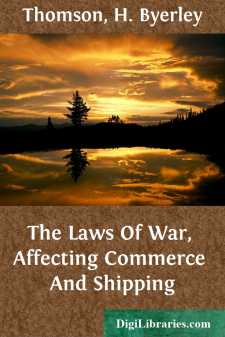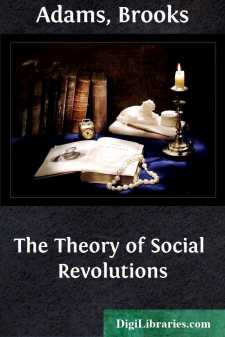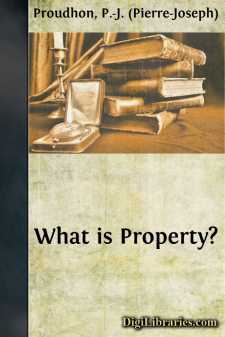Law
- Commercial 1
- Common 1
- Computer & Internet 1
- Constitutional 4
- Courts 3
- General 3
- International 1
- Military 1
- Natural Law 1
- Property 1
Law Books
Sort by:
INTRODUCTION TO PART I. It would be superfluous to trouble my readers, in a concise practical treatise, with any theoretical discussion on the origin of the Law of Nations, had not questions of late been often asked, respecting the means of accommodating rules decided nearly half-a-century ago, to those larger views of international duty and universal humanity, that have been the natural result of a...
more...
I In the Night Court the drama is vital and throbbing. As the saddest object to contemplate is a play where the essentials are wrong, so in this court the fundamentals of the law are the cause of making it an uncomfortable and pathetic spectacle. The women who are brought before the Night Court are not heroines, but the criminal law does not seem better than they. It makes little attempt to mitigate...
more...
CAP. V. An act for preventing tumults and riotous assemblies, and for the more speedy and effectual punishing the rioters.I.Whereas of late many rebellious riots and tumults have been in divers parts of this kingdom, to the disturbance of the publick peace, and the endangering of his Majesty's person and government, and the same are yet continued and fomented by persons disaffected to his Majesty,...
more...
by:
Brooks Adams
CHAPTER I THE COLLAPSE OF CAPITALISTIC GOVERNMENT Civilization, I apprehend, is nearly synonymous with order. However much we may differ touching such matters as the distribution of property, the domestic relations, the law of inheritance and the like, most of us, I should suppose, would agree that without order civilization, as we understand it, cannot exist. Now, although the optimist contends that,...
more...
by:
Anonymous
INTRODUCTION The legal history of Rome begins properly with the Twelve Tables. It is strictly the first and the only Roman code,[1] collecting the earliest known laws of the Roman people and forming the foundation of the whole fabric of Roman Law. Its importance lies in the fact that by its promulgation was substituted for an unwritten usage, of which the knowledge had been confined to some citizens of...
more...
The correspondence of P. J. Proudhon, the first volumes of which we publish to-day, has been collected since his death by the faithful and intelligent labors of his daughter, aided by a few friends. It was incomplete when submitted to Sainte Beuve, but the portion with which the illustrious academician became acquainted was sufficient to allow him to estimate it as a whole with that soundness of...
more...







